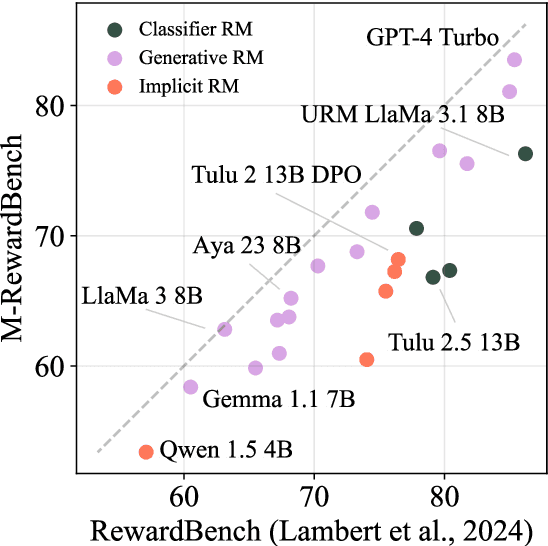Srishti Gureja
Surveying the Effects of Quality, Diversity, and Complexity in Synthetic Data From Large Language Models
Dec 04, 2024



Abstract:Synthetic data generation with Large Language Models is a promising paradigm for augmenting natural data over a nearly infinite range of tasks. Given this variety, direct comparisons among synthetic data generation algorithms are scarce, making it difficult to understand where improvement comes from and what bottlenecks exist. We propose to evaluate algorithms via the makeup of synthetic data generated by each algorithm in terms of data quality, diversity, and complexity. We choose these three characteristics for their significance in open-ended processes and the impact each has on the capabilities of downstream models. We find quality to be essential for in-distribution model generalization, diversity to be essential for out-of-distribution generalization, and complexity to be beneficial for both. Further, we emphasize the existence of Quality-Diversity trade-offs in training data and the downstream effects on model performance. We then examine the effect of various components in the synthetic data pipeline on each data characteristic. This examination allows us to taxonomize and compare synthetic data generation algorithms through the components they utilize and the resulting effects on data QDC composition. This analysis extends into a discussion on the importance of balancing QDC in synthetic data for efficient reinforcement learning and self-improvement algorithms. Analogous to the QD trade-offs in training data, often there exist trade-offs between model output quality and output diversity which impact the composition of synthetic data. We observe that many models are currently evaluated and optimized only for output quality, thereby limiting output diversity and the potential for self-improvement. We argue that balancing these trade-offs is essential to the development of future self-improvement algorithms and highlight a number of works making progress in this direction.
M-RewardBench: Evaluating Reward Models in Multilingual Settings
Oct 20, 2024



Abstract:Reward models (RMs) have driven the state-of-the-art performance of LLMs today by enabling the integration of human feedback into the language modeling process. However, RMs are primarily trained and evaluated in English, and their capabilities in multilingual settings remain largely understudied. In this work, we conduct a systematic evaluation of several reward models in multilingual settings. We first construct the first-of-its-kind multilingual RM evaluation benchmark, M-RewardBench, consisting of 2.87k preference instances for 23 typologically diverse languages, that tests the chat, safety, reasoning, and translation capabilities of RMs. We then rigorously evaluate a wide range of reward models on M-RewardBench, offering fresh insights into their performance across diverse languages. We identify a significant gap in RMs' performances between English and non-English languages and show that RM preferences can change substantially from one language to another. We also present several findings on how different multilingual aspects impact RM performance. Specifically, we show that the performance of RMs is improved with improved translation quality. Similarly, we demonstrate that the models exhibit better performance for high-resource languages. We release M-RewardBench dataset and the codebase in this study to facilitate a better understanding of RM evaluation in multilingual settings.
 Add to Chrome
Add to Chrome Add to Firefox
Add to Firefox Add to Edge
Add to Edge